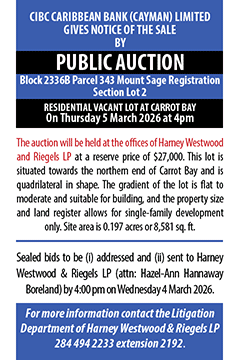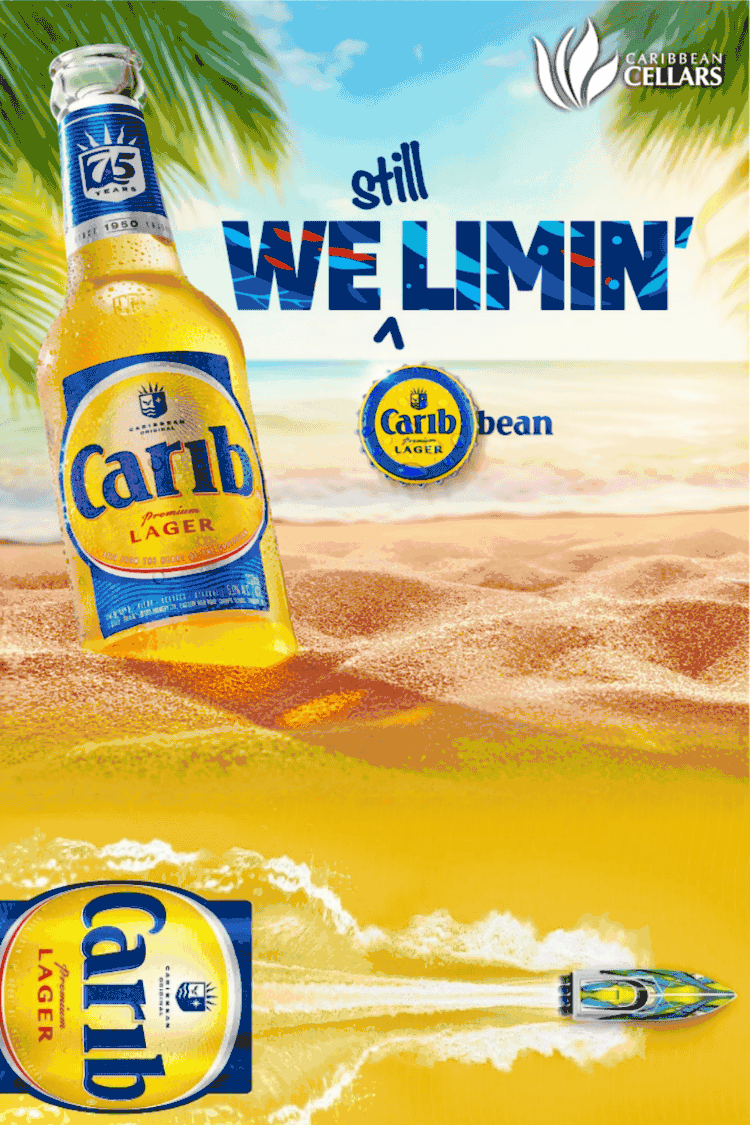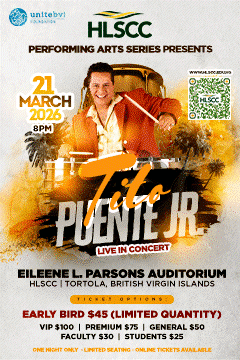BVI politics at a glance
ROAD TOWN, Tortola, VI - The general election teed up for 07 November 2011 was projected to be highly competitive and hotly contested. Thus far the campaign is red hot and living up to its billing. The combatants are armed (figuratively) and exchanging a volley of vicious verbal blows. Further, the interest in the election is historically high. In contrast to 33 candidates in 2003 and 35 in 2007, 43 candidates, a record number, tossed their hat in the ring to run in the 2011 gener
Nomination completed, the war of words will ramp up and as Virgin Islanders battered from the verbal crossfire wait patiently to rush to the polls to cast their votes to elect representatives to the HOA.
But directly electing representatives to a legislative body is a right that was not always available to indigenous Virgin Islanders and was brought about by political agitation and protests.
And as voters and pundits ponder the outcome of the approaching election, let’s take a quick glance on where we were, how far we have come, and how political growth and maturity has transformed the BVI.
Though the BVI has been under British flag continuously since 1672, it was not until 1774 that the first legislative body was established. This legislature comprised mostly of the planter class; indigenous Virgin Islanders had no say in directly electing representatives. And as the agricultural economy declined and the planter class moved on, interest in the legislature waned. Eventually, it was dissolved in 1901.
Between 1901 and 1950 the BVI had no legislative body. It was part of the Leeward Island Federation as a Presidency with its own local commissioner. Nonetheless, indigenous Virgin Islanders had no elected representatives to redress issues. Thus, Theodolph H. Faulkner, a vocal Anegadian fisherman, frustrated with the lack of representation, led one the largest of protest marches in BVI’s history in November 1949 through the streets of Road Town to Commissioner J.A.C. Cruikshank’s office to protest the lack of representation and to lay out demands for change.
And changed came quickly. The march is credited as one of the factors that drove the restoration of the Legislative Council in 1950. It comprised of eight members, two ex-official members, two nominated members and four elected members. Requirements for standing for election included income, property, and a deposit (forfeited with failure to garner a certain percentage of votes); voter qualification included a literacy test (Legco.gov)---adult suffrage came later. The general election held in November 1950 was the first time that indigenous people had the right and opportunity to directly cast votes for representatives.
For electoral purposes, the territory was considered as a single constituency; it was the first at large system, lasting only one term. From nine candidates contesting the election, Isaac G. Fonseca, Howard R. Penn, Carlton de Castro and Brudenell Bruce were voted in as the first elected members. But surprisingly missing from this grouping was Anegadian Theodolph H. Faulkner, a lead agitator and probably one the BVI’s early national heroes. The 1950 constitutional change was a harbinger of positive political change in the BVI.
The period between 1950 and 1967 ushered in number internal and external political and governmental changes. For example, the Constitution and Elections Act of 1954 supplanted the Constitution Act of 1950, establishing a new Legislature Council with five electoral districts. In 1956 the Leeward Federation was dissolved to pave the way for the creation of the West Indies Federation.
The BVI opted not to participate in the federation, resulting in its elevation to colony status with greater legislative authority and a direct line to the UK; the title of Commissioner changed to Administrator. Further, the reform created a Trade and Production, and Works and Communication committees that were each headed by an elected member; this was a precursor to ministerial government. Moreover, this period brought the iconic H.L. Stoutt, along with other grassroot members to the Legislature.
The BVI started on the road to political growth and maturity in the 1950’s. But in many quarters it was considered a “backwater” territory. It was grossly underdeveloped with a tiny population and little infrastructure such as roads, electricity, water, sewage, telephone, airport, telephone, or deepwater port (Legco.gov.vg). Nonetheless, the new 1967 Constitution and the election was a sea change for BVI politics, growth, and development.
It ushered in the ministerial system with a chief minister and ministers, seven single-member districts, changed title of administrator to governor (1971), and shared responsibilities between the local government and the Governor.
The Governor retained external affairs, internal security, civil service, courts, and finance. Another change was the emergence of political parties. Three political parties contested the 1967 election: People’s Own Party, led by Isaac G. Fonseca; BVI Democratic Party, led by Dr. Q. W. Osborne; and United Party led by H. Lavity Stoutt. The United Party emerged as the winner and H. Lavity Stoutt was sworn in as the BVI’s first Chief Minister(Legco.gov).
The 1967-1977 decade was a progressive yet tumultuous period. A number of significant legislative measures were put in place, i.e., Immigration and Passport Ordinance, Wickhams Cay Development Authority Ordinance among a host of other effective governing measures. Moreover, the 1976 Constitution increased the number of electoral districts from 7 to 9, and financial responsibility shifted from the Governor to the Chief Minister. The end of this decade was a watershed period for the BVI. It went from being a “back water” territory which depended on aid to paying its own way. Since on or about the late 1970’s, the BVI has been self supporting.
Aid from the UK is very minimal and limited to special interest areas, i.e., the new prison, and partial funding of the new governor’s residence.
From the early days, Virgin Islanders, though they may be losing some focus and tenacity, have fiercely fought and blazed a trail in fighting disenfranchisement, lack of representation, neocolonialism, loss of rights and freedom, or lack of economic empowerment. And fighting the one-sided, myopic, lose-lose scheme to lease Wickhams Cay and a significant portion of Anegada to British developer Bate-Hill was no exception. Discontent with this lease was one of the major events of this decade. In 1969 the Ministerial System faced its first major and serious test over lease to developer Bates-Hill.
The lease was viewed as a scheme to confer privileges on British entrepreneurs and expatriates (Islandsun.com). Sensing the lose-lose features of the lease for Virgin Islanders, Positive Action Movement(PAM) led by national hero Noel Lloyd and Walter Lindy (Ras Uhuru) de Castro and others leaped into action to protest the grossly one-sided and unbalanced lease that ceded prime real estate that benefitted the developer but shafted Virgin Islanders. Through a series of public demonstration protests by PAM and follow-on negotiations, the UK government loaned the BVI government approximately $6M to buy out the interest of the developer (Legco.gov), preserving the acreage for local use, enjoyment and development.Moreover, the period 1977-present the BVI experienced significant economic growth and development and more political changes.
Tourism and financial services emerged as the twin pillars of the economy.
These two economic engines, coupled with political vision and effective governance, has transformed the BVI from a backwater status to having a high quality of life and one of the highest per capita income (S41K) and standard of living in the region. A number of governing measures were enacted during period including the Social Security Act(1979), BVI Community College Act (1990), Bank and Trust Companies Act….etc. The new Election Act of 1994 re-introduced at large system (4 members ), changed the title of Chief Minister to Premier, and changed the Legislative Council to the House of Assembly. This period has seen the rise and success of independent candidates (Former Chief Ministers Willard Wheatley and Cyril Romney); it has also seen the decline in the power brokering of independent candidates. It’s my opinion that the power of the party system may be a contributing factor in declining influence.
Further, the strong economy, coupled with labor shortage, caused an influx of immigrants from around the globe with the expatriate population now outnumbering the local population.
The rapid, diverse influx of immigrants has added to the rich culture and heritage of the Virgin Islands yet it has burdened this microstate with a myriad of social ( health, education, housing), economic and political issues. The problems are not insurmountable but needs urgent attention. The upcoming up elections have had occasional flare ups over eligibility to stand for election. But with the expatriate population outpacing the local population persons standing for election whose parents were born elsewhere may be the new normal.
Moreover, the BVI has grown and matured politically. The political structure, skilled politicians, and stable political climate were major contributing factors to the growth and development of the territory. Politics have changed and is still evolving in the BVI. For example technology is changing the way candidates communicate and campaign: cellphones, talkshows, social media, internet, online news outlets…etc.
Nonetheless, the old fashion face to face is still powerful. The current political structure changed the relationship and expectations between elected representatives and the people. Thomas “Tip” O’Neill, former speaker of the U.S. House of Representative is credited with the expression that all politics is local. Well, in the BVI politics is local, and personal.
Today, the BVI, as in most other regional countries political patronage is common place.. Many Virgin Islanders have grown dependent on government for many needs. The role of government simply is to serve and protect and to set up the frame work for the public sector to provide most services. But, many citizens expect government to provide direct and indirect employment that pays a power of money, and other services. In larger countries, the private sector is the prime employer but in many microstates as the BVI government is often times by necessity the major employer. Though this may be politically necessary, is the employment numbers reasonable and is the cost sustainable?
Politics in the BVI is tough business, for candidates standing for election may not always be elected based on merit. They may be elected based on familial relationships, place of residency, popularity, education, incumbency, social status, knowledge, business relationships, personality or past employment actions. Virgin Islanders can spot opportunists( only come around at election time) and phonies kilometres away. They have memories like an elephant. Candidates may be other otherwise qualified but support may be withheld if you pass a fellow and do not hail him up or if you pass a man and do not give him lift, or if a man asked for help and you fail to deliver. District, retail politics is tough and challenging for many elites, big shots, and upper class. To get elected and re-elected one has to go visit (consistently) Miss Jane, Taunty Maude, Uncle Joe, or Brother Bob at their humble places of abode and share a slice of tart, a cup of bush tea, a bowl of peas soup, a glass of guava berry, a piece of fry or relive some folklore.
Citizens have grown dependent on government but politicians are partially s responsible for much of this behavior, for they over promise and set un reasonable expectations.
Politics have served the BVI well and it is days away from a critical election. Governments for the past 60 years has, for the most part serve the territory well. But this next government will have to set table for the territory to grow and sustain the high standard of living and quality of life for current and future Virgin Islanders, it will have to protect and preserve natural resources, prepare its people to compete in the market place, provide affordable and accessible health care, build a modern and operate a modern transportation system, and build, operate and maintain quality, reliable infrastructure (water, electricity, sewer, telecommunication, road, airport, seaport).
Make a difference vote on election day, November 07. Theodolph H. Faulkner and others have fought and sacrifice for the right.








_04.gif)


_03.gif)






















2 Responses to “BVI politics at a glance”